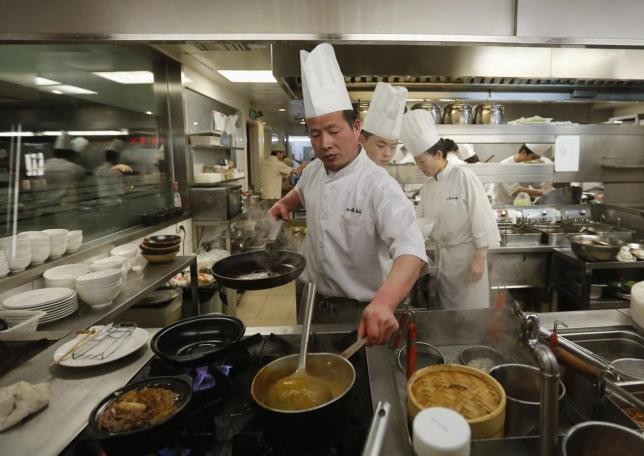China has expressed confidence that it can maintain last year's economic growth momentum based on data from its service and technology industries, a top planning official said on Wednesday, Feb. 3, as reported by China Daily.
"China will not see a hard landing," Xu Shaoshi, Minister of the National Development and Reform Commission, was quoted as saying. "Making a hard landing is not a realistic scenario," he added, responding to comments voiced by international observers.
Xu remarked that the country had been "doing well enough" last year to achieve 6.9 percent GDP growth, which accounted for 15 percent of the world's total economic growth.
The minister said that China has helped the global economy with $127.6 billion of direct overseas investment, a 10-percent increase year-on-year.
The country, however, will not aim for double-digit growth as its strategic focus will be on "mending the economy's weak points" and building up its structural strength. This year, the country will also strive to stabilize prices and address urban unemployment rate.
Yu Bin, a senior economist at the State Council Development Research Center, was quoted as saying that to achieve its goal of doubling its 2010 GDP in 10 years, China must aim for an annual growth of more than 6.5 percent through the 13th Five-Year Plan (2016-20).
He Zhicheng, chief economist at Agricultural Bank of China, noted that many local governments have adopted a more flexible range for local economic growth this year, adding that the country can do away with a specific growth target as long as it can maintain a steady course of growth.
According to He, creating more profitable enterprises, which can only come from continuous reforms, would be the greatest challenge. He said that China plans to address the economic slowdown and the overcapacity besetting some industries and use public investment projects to prevent a future slowdown.
Niu Li, director of macroeconomics at the State Information Center, said that the country may create more room for reform and phase out unwanted industrial capacity while maintaining more flexible growth targets.
He Fan, chief economist at Caixin Insight Group, noted that service industries have a strong start in 2016 after contributing more than 50 percent of the economic growth last year, with business activity growing at the rapid rate in six months.
For January, the Caixin China General Services purchasing manufacturers' index registered 52.4, the highest level since July.
The Caixin chief economist said that the service industry can generate more growth for the economy if the government can continue with reforms and cut more bureaucracy.
Zhang Jun, dean of Fudan University's School of Economics, warned that greater uncertainties in the stock market and the exchange market will come this year, and a more flexible growth target will enable the government to deal more with the financial market situation.




























